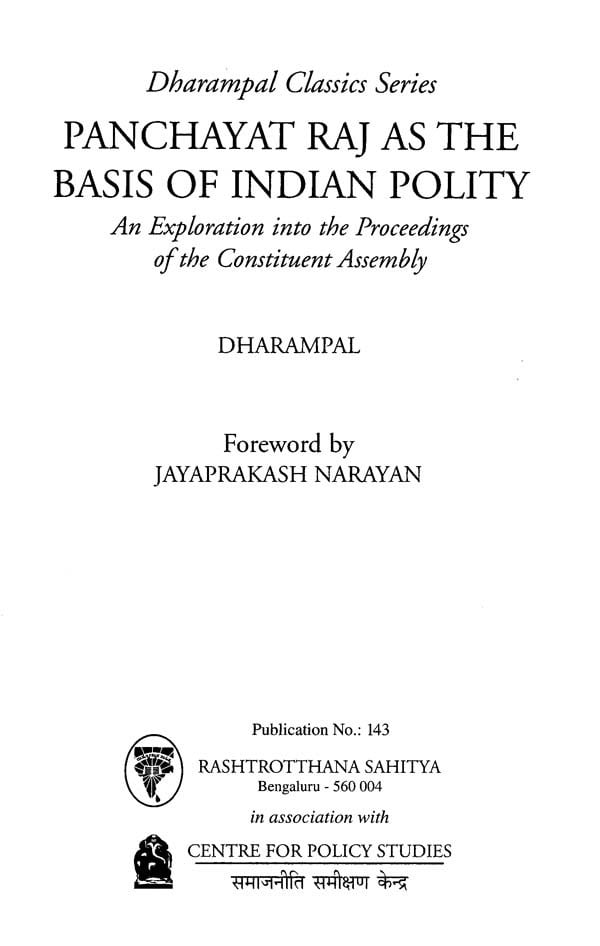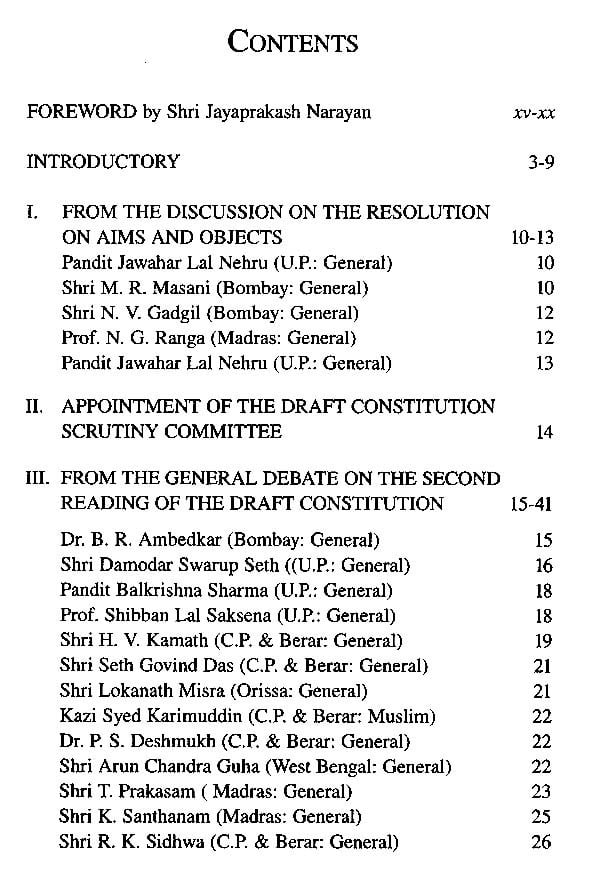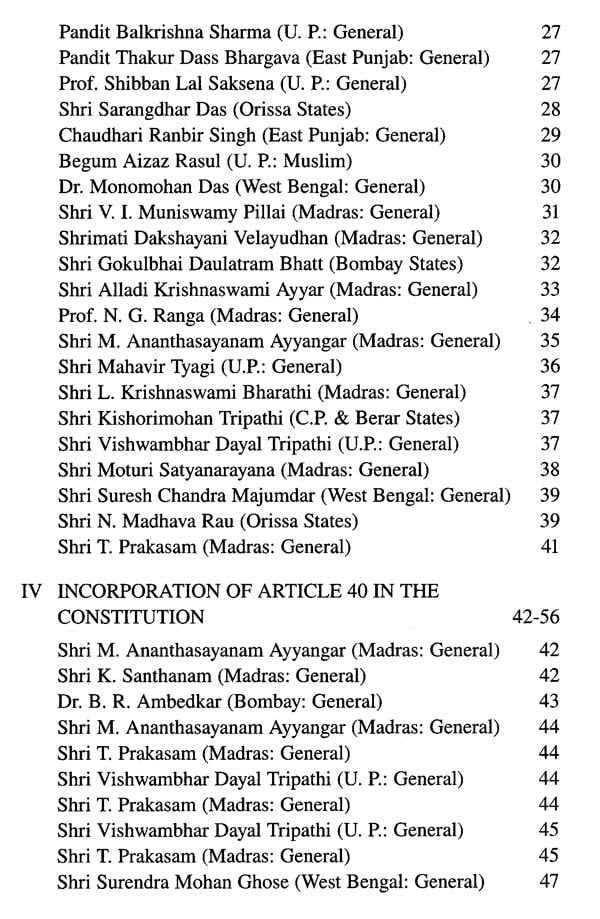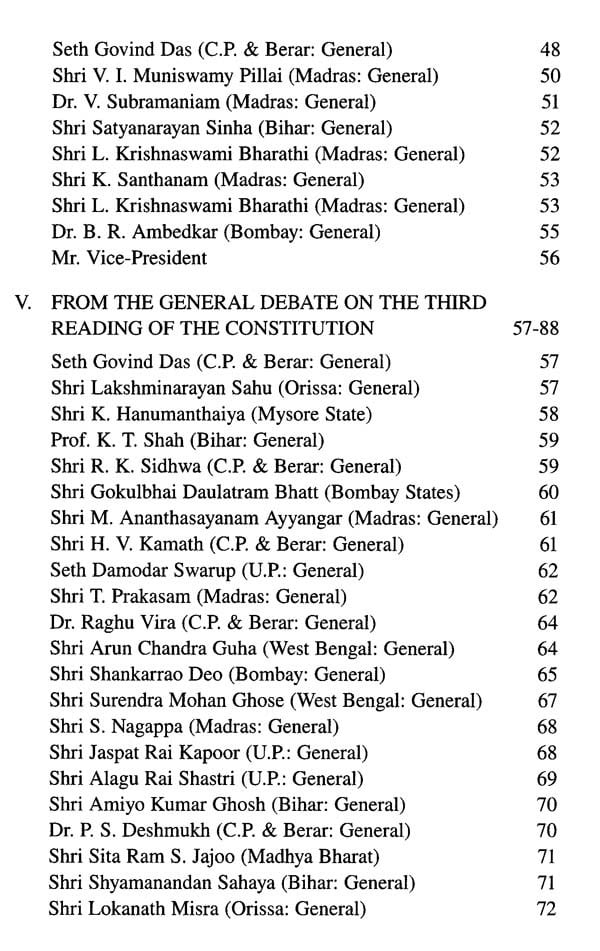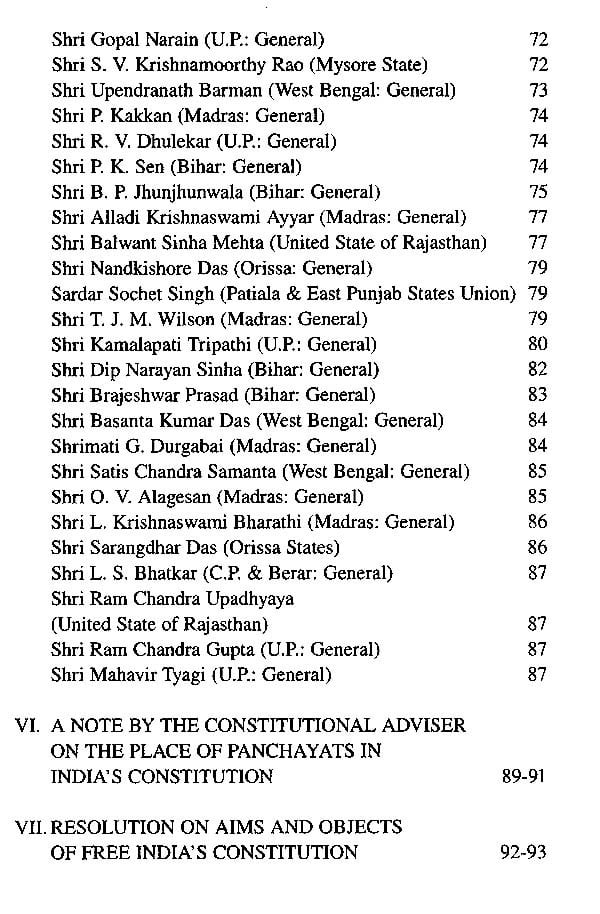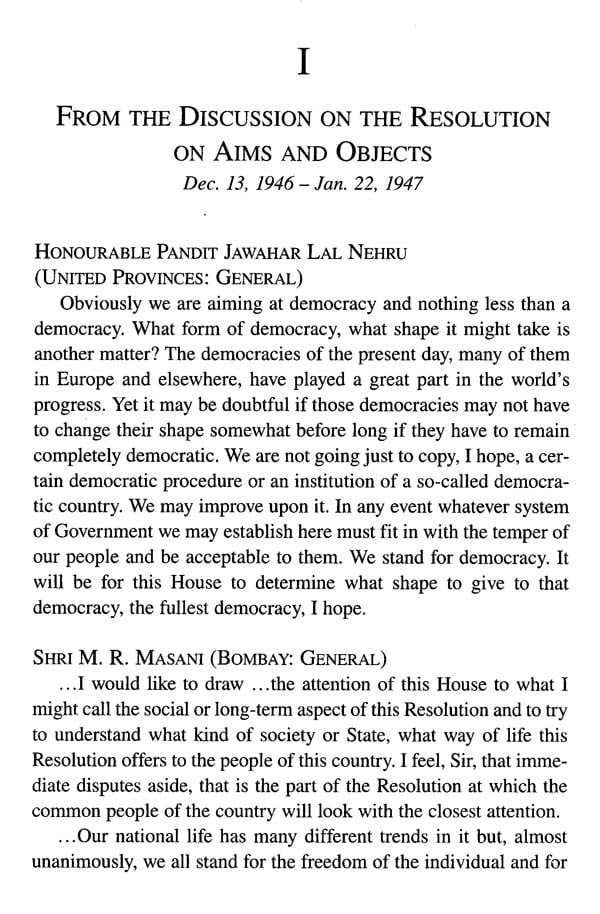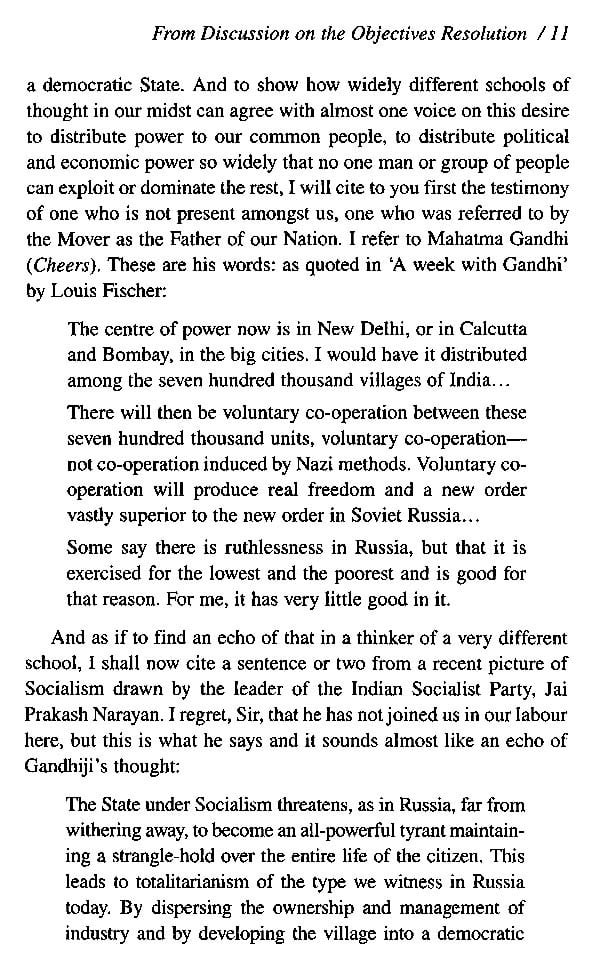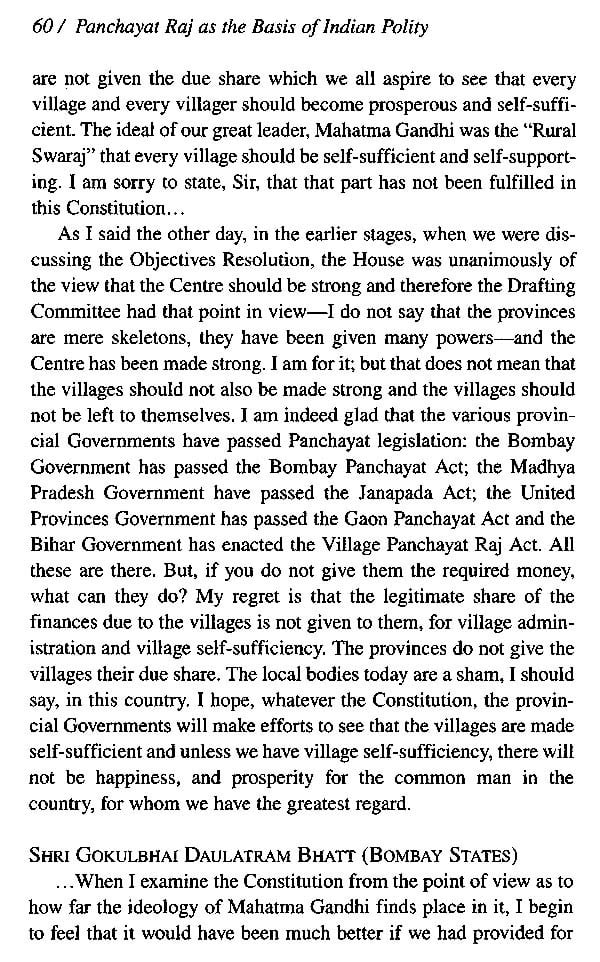
Panchayat Raj- As The Basis of Indian Polity (An Exploration into the Proceedings of the Constituent Assembly)
Book Specification
| Item Code: | AZE272 |
| Author: | Dharam Pal |
| Publisher: | CENTER FOR POLICY STUDIES, CHENNAI |
| Language: | ENGLISH |
| Edition: | 2021 |
| ISBN: | 8175310928 |
| Pages: | 108 |
| Cover: | HARDCOVER |
| Other Details | 9.00x6.00 inches |
| Weight | 280 gm |
Book Description
Panchayat Raj as the Basis of Indian Polity (1962), the first in this Series, was the first book of Sri Dharampal. It presented extracts from the Constituent Assembly Debates on the place of Panchayat Raj in the constitutional polity of Independent India. This passionate debate ultimately led to the mention of Panchayat Raj in the non-enforceable Directive Principles part of the Constitution. The book gave an early indication of the deep interest Dharampalji was to develop in the understanding of classical Indian society and polity and the process of its subversion by the British.
DHARAMPAL (1922-2006) authored several books that sought to present different aspects of the Indian society and polity from an Indian perspective. These rigorously documented books disrupted the scholarly consensus about the backwardness and dis-functionality of pre-British India and presented the picture of a society that in fact was highly sophisticated and advanced in its political ideas and arrangements and in its sciences, technologies and education systems. These works are of abiding interest and importance.
In the Dharampal Classics Series, we present his major works in their original authentic version and in an aesthetically rich format. The Series is being brought out by the Centre for Policy Studies, a research institute with which Sri Dharampal was associated for several years, and Rashtrotthana Parishat, an organisation that had the good fortune to host Dharampalji at Bengaluru on several occasions and to introduce him and his work to the Kannada readers.
Shri Dharampal, secretary of the Association of Voluntary Agencies for Rural Development (AVARD) has performed a great service in digging up from the voluminous proceedings of the Constituent Assembly all relevant material regarding the place of panchayat raj in the political structure of free India. A study of the material presented here would fill any one who has the least concern with Indian democracy with sorrow. During the freedom struggle, because of Gandhiji's formative influence upon the political thinking of those who fought for freedom, it was more or less taken for granted that gram raj would be the foundation of Swaraj. In other words, the concept of political and economic decentralisation was axiomatic with the fighters for freedom. But when the Constitution came actually to be constructed, that concept somehow was forgotten, or, to be more precise, remembered only as an after-thought. The present wide-spread practice in the ruling circles of showering seasonal, fulsome praise on Gandhiji and neglecting him in practice seems to have had its beginnings right at the outset of our freedom, when Gandhiji was still present in flesh and blood.
There was, perhaps, a sub-conscious thought in the minds of the political leaders who followed Gandhiji that while in the enforced condition of disarmament of the Indian people, Gandhiji's technique and philosophy of Satyagraha were useful in the struggle for freedom, his ideas were not relevant to the tasks of post-freedom reconstruction.
The resolution on the aims and objects of free India's Constitution was introduced in the Constituent Assembly on December 13, 1946. This was a period of turmoil and uncertainty. The Muslim League, the second major party in India, had boycotted the Assembly, and most of the representatives of the then Indian States had yet to be brought in. Yet Gandhiji was then very much with us. It is not surprising, therefore, that no specific mention was made in this resolution itself regarding the place of India's villages in an Independent India, their role in its government and the meaning of Swaraj to the Indian village. Whatever needed to be said about the subject was presumed to be covered by similar references like "the passion that lies in the hearts of the Indian people today" and that there was no doubt that his (Gandhiji's) spirit hovers over this place (Constituent Assembly hall) and blesses our undertaking." During the course of his speech while moving the resolution, the mover (Shri Jawahar Lal Nehru) said: Obviously we are aiming at democracy and nothing less than a democracy. What form of democracy, what shape might it take, is another matter? The democracies of the present day, many of them in Europe and elsewhere, have played a great part in the world's progress. Yet it may be doubtful if those democracies may not have to change their shape somewhat before long if they have to remain completely democratic. We are not going just to copy, 1 hope, a certain democratic procedure or an institution of a so-called democratic country. We may improve upon it. In any event whatever system of government we may establish here must fit in with the temper of our people and be acceptable to them. We stand for democracy. It will be for this House to determine what shape to give to that democracy, the fullest democracy, I hope.
**Contents and Sample Pages**